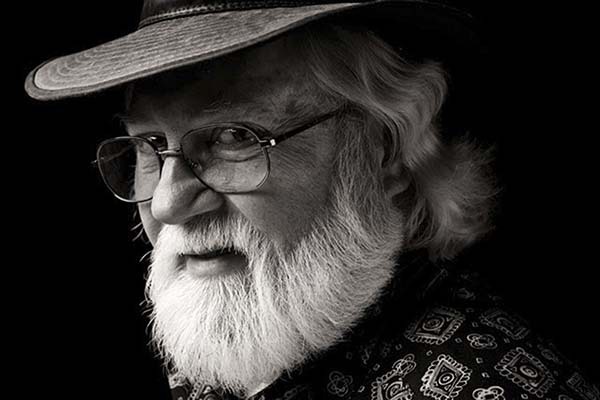Our culture has changed a lot in the last 30 years.
Regular technological innovations, shocking scientific advancements and epic cultural shifts have brought us from Ataris, big hair and holding hands across the country to smart phones, skinny jeans and driving cars that practically park themselves.
For all that’s new, however, some things remain the same. And, in a special anniversary edition of his landmark Northwest nature essay collection “Wintergreen: Rambles in a Ravaged Land,” Robert Michael Pyle’s poignant exploration of life and land in the Willapa Hills shows that perhaps we haven’t come as far as a nation in the marriage of economy and ecology as we might like to think.
First published in 1986, the book is a tender but direct portrait of a rural community in southwest Washington where both human life and the forests are staring down extinction. Virtually every inch of the hills there have been logged, often repeatedly, in the previous hundred years — threatening the survival of both the land and the people, leaving dying towns as well as devastated ecosystems to face the uncertain future of the quickly approaching 21st century.
It is a story of a very specific time and place, but one also of the eternal struggle between preservation and progress.
Weaving vivid portraits of the landscape and its inhabitants with his own love of nature, Pyle’s book has been praised by those who make their living with chainsaws, as well as environmentalists, for its even-handed passion and realistic perspective.
Having fallen out of print, the book was chosen by Bainbridge Island’s own David Guterson as a title deserving of a spot in the special Pharos Edition series. Thus, “Wintergreen” returned to bookshelves in time to mark its 30th anniversary, and Pyle will visit the Bainbridge Island Museum of Art for a special public discussion about the book, its effect and his work since, with Guterson at 7 p.m. Wednesday, Oct. 14.
The event, presented by Eagle Harbor Book Company, is free, but seating is limited and guest are encouraged to arrive early.
Pyle said he was unaware that his book had been recommended — let alone chosen — as the latest title in the esteemed reprint series dedicated to bringing to light out-of-print, lost or rare books of distinction, as chosen by prominent authors.
“I did not know David was going to do that so it was a wonderful surprise,” Pyle said.
“It came out of the blue and it made me very, very happy because I had been concerned about getting it back into print.”
The book, actually the fourth for Pyle to be published, still stands as a solid example of his work and an excellent introduction to his style for new readers.
“I’m very retrospective about it after 30 years,” he explained. “I guess I’d have to say that ‘Wintergreen’ was the first book I wrote in which I really tried to lay out my attitude toward the world and toward people and nature. And I think it’s held up.
“I think it relates to a number of other peoples’ experiences,” Pyle added. “I’m not ashamed of it and I’m happy to have it out there still. I think it still speaks for what I believe.”
Having written more than 18 books in his career, on nature subjects ranging from Bigfoot to butterflies and everything in between (as well as hundreds of essays, articles, short stories and poems), Pyle said — and Guterson agreed in his introduction to the new edition — that he has not changed much since “Wintergreen.”
“I hope I’ve gotten to be a better writer and more incisive,” he laughed, adding that his long-in-the-works first novel is now in the final stages of revision and may be published soon.
“It’s freeing,” Pyle said of his excursions into fiction and poetry. “With nonfiction — which I do love, I’m considered primarily an essayist — you’re always bound by the truth.”
When pursuing a true story for a nonfiction project, Pyle said, the author is beholden to his reader to maintain the most objective take possible, something which he believes, in “Wintergreen” in particular, that he maintained well.
“I got the impression during the last edition that the readership for this book has, in fact, broadened,” he said. “A lot of the early readers were people who were particularly interested in either the Willapa Hills, where the book is set, or in the maritime Northwest or in logging or in natural history and those things are all still true.
“However,” he added, “Now I’m hearing from people who are reading the book who have a global environmental outlook and they’re finding that ‘Wintergreen,’ in the way that it speaks to the local [issues], is also speaking to some larger global questions.”
A much larger portion of the population has seemed to wake up in the last decade or so to just how precarious the balance between commerce and conservation is, Pyle said, making the harsh lessons of places like the Willapa Hills that much more timely.
“We’re all part of the fiber economy,” Pyle said. “We all draw on [the] trees.”
In fact, in terms of the book’s unique place among Northwest literature, Pyle said that many readers were surprised upon reading it to find it was more than just the anti-logging screed so many anticipated.
“It’s a book that’s not against drawing what we draw from the land,” Pyle said. “It understands what it’s printed on.
“It’s not a question of being anti-logging,” he added. “It’s a question of opposing practices that are as harmful to the people in the communities and the ongoing sustainability of the forest as they are harmful to the woods themselves.”
BIMA is located at 550 Winslow Way East. Visit www.biartmuseum.org for more information and directions, and visit www.eagleharborbooks.com or call 360-692-2357 for more information about this and other upcoming author visits.



